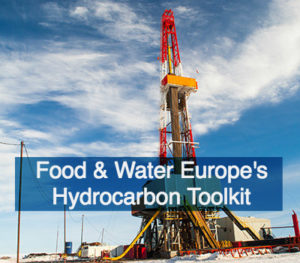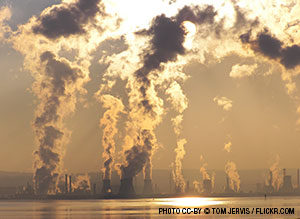NGOs Include Attac France, Corporate Europe Observatory, Ecologistas en Acción, Food & Water Europe, Friends of the Earth Europe, Global Justice Now, re:Common, the Transnational Institute
 Brussels—The ‘trilogue’ negotiations concluded between the EU Commission, Parliament and Council in the early hours of the night has prolonged the future of the EU Emissions Trading System as a source of billions of euros in polluter subsidies, according to Attac France, Corporate Europe Observatory, Ecologistas en Acción, Food & Water Europe, Friends of the Earth Europe, Global Justice Now, re:Common and the Transnational Institute.
Brussels—The ‘trilogue’ negotiations concluded between the EU Commission, Parliament and Council in the early hours of the night has prolonged the future of the EU Emissions Trading System as a source of billions of euros in polluter subsidies, according to Attac France, Corporate Europe Observatory, Ecologistas en Acción, Food & Water Europe, Friends of the Earth Europe, Global Justice Now, re:Common and the Transnational Institute.
EU member states will potentially be able to use a sizable chunk of these funds to continue burning fossil fuels, with Poland, for instance, looking to prolong the lifespan of its aging coal infrastructure.
Commenting on the ‘trilogue’ deal, Corporate Europe Observatory’s climate campaigner Belén Balanyá said:
“Using emissions trading revenues to subsidy fossil fuels is extremely irresponsible and works directly against efforts to halt catastrophic climate change. Once again, it is obvious that the emissions trading system benefits big polluters far more than it does the climate. “
Maxime Combes of Attac France added:
“While an increasing number of member states are phasing out coal power, it is absurd that emissions trading revenues may end up supporting this type of fossil-energy generation in other parts of the EU.”
But coal financing is just the tip of the iceberg. Polluter subsidies linked to emissions trading revenues could reach close to €200 billion between 2021 and 2030. The largest share of this money is earmarked for free pollution permits to be handed to steel and cement producers, in order to help them delay the transition away from fossil fuels.
Food & Water Europe campaigner Frida Kieninger commented:
“While the EU touts its ‘climate leadership’ at the UN talks in Bonn, the emissions trading policy agreed in Brussels means the EU will continue to shirk its fair share of global climate action. Emissions trading is clearly a part of the problem rather than a climate solution.”
Notes to editors:
- The ‘trilogue’ negotiations establish the rules for a new, fourth phase of the EU Emissions Trading System, which will run from 2021-2030. The ETS has consistently been used to undermine other climate policies, including energy efficiency and renewable energy. The example of coal-fired power generation shows how this could continue in the fourth phase. As well as offering direct subsidies to “modernise” coal generation, the extension of the ETS assumes that significant power generation from coal will continue until 2030. Yet an increasing number of EU countries are announcing plans to phase out coal-power generation in the next decade. Tougher standards on air pollutants, passed this summer as part of the implementation of the Industrial Emissions Directive, have put pressure on other countries to do the same.
- Corporate Europe Observatory has highlighted the industry lobbying which skewed the EU Emissions Trading System (ETS) in favour of polluting corporations, analysing how big polluters influenced the ETS reform to ensure it would serve their interests.




